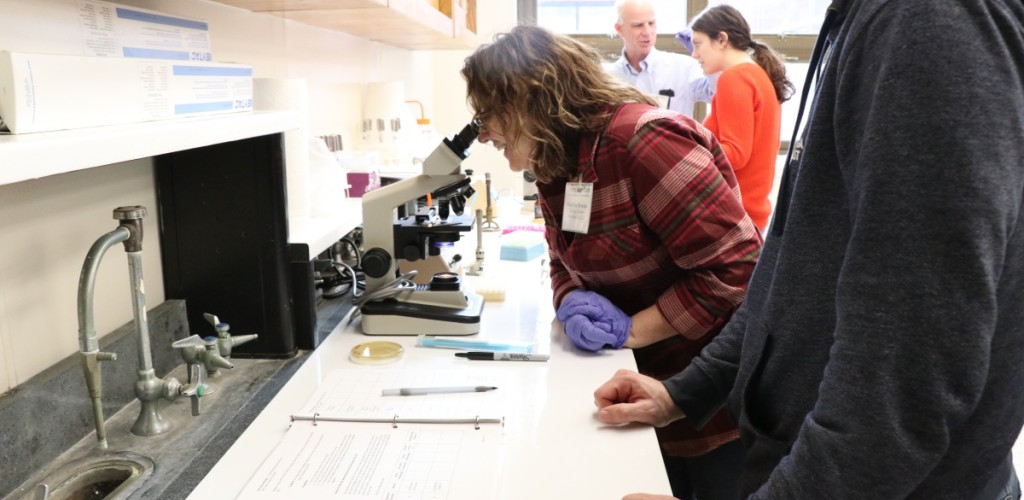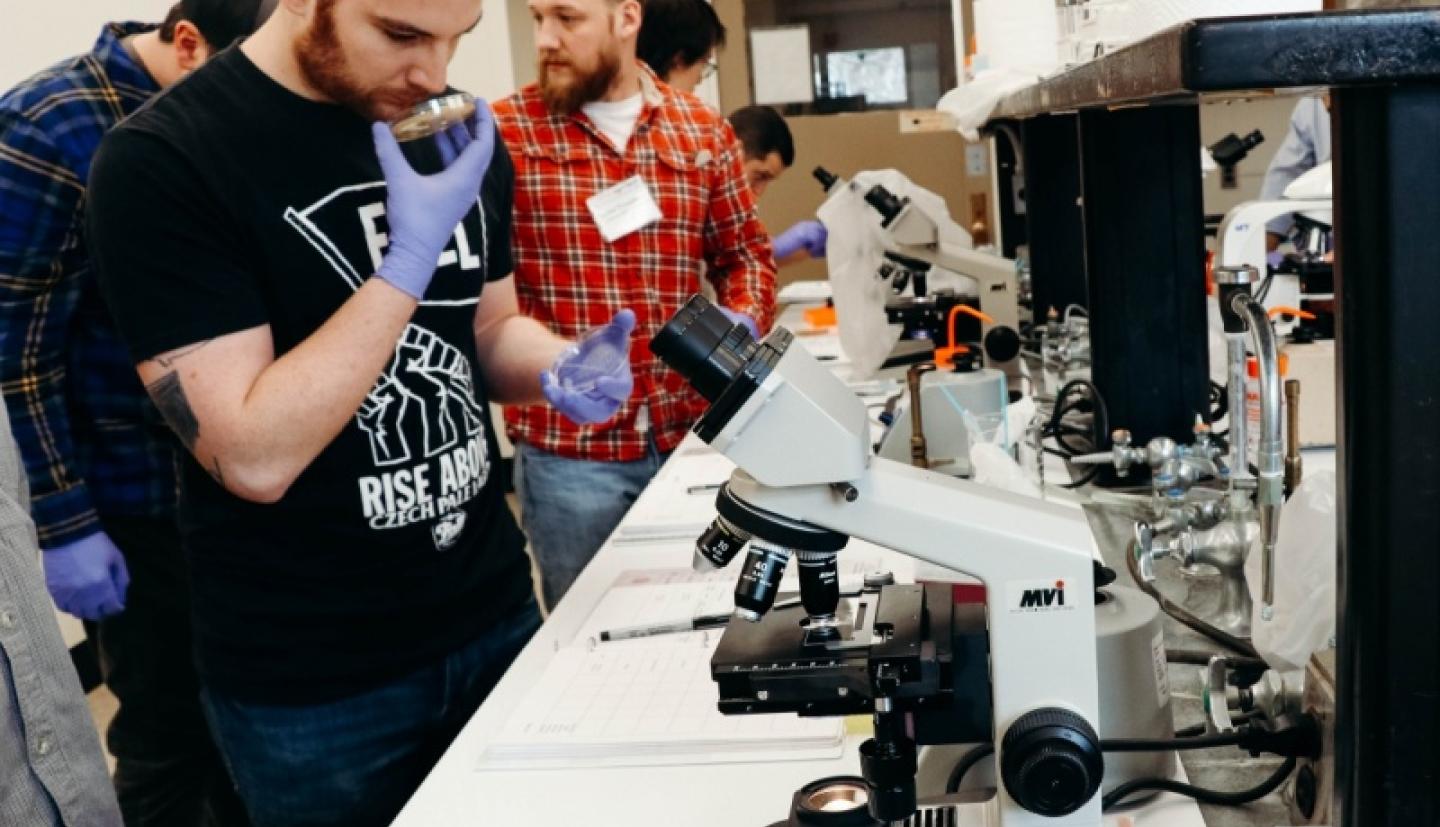As success for New York’s beer industry continues to grow, production expertise is becoming increasingly important. Cornell AgriTech is working to expose brewers to relevant scientific knowledge so that they can better understand the nuances of producing quality beer.
New York state is home to over 400 breweries, which play an important role in New York’s $100 billion tourism industry. “Consumers visiting our state’s breweries are becoming more and more savvy when it comes to identifying quality beers,” said Kaylyn Kirkpatrick, brewing extension associate located at Cornell AgriTech. “That’s why it’s important to help brewers get ahead of the curve in terms of using the best techniques and materials in their beers.”
On March 16, Kirkpatrick hosted a beer microbiology class with a focus on yeast selection and management for 20 New York brewers. Yeast is one of the most important aspects of production because it is responsible for the fermentation process in beer and contributes to classification of the beer style.
“The yeast Saccharomyces cerevisiae is an important organism that has been steering beer styles since the beginning of humanity,” said Patrick Gibney, assistant professor of food science and the E&J Gallo Sesquicentennial Faculty Fellow who taught the course with Kirkpatrick. “These days, there are more than 500 types of yeast for brewers to choose from, making it one of the most proprietary ingredients in the brewing process.”
Among the course highlights was a guest lecture from Lance Shaner, co-founder of Omega Yeast Labs LLC, which is one of the most innovative yeast companies in the world. The course also included hands-on practice with lab equipment and an in-depth look at counting yeast and testing for bacterial contamination to evaluate beer for microbiological off flavors.
“I think this kind of course is really valuable for our industry,” said Patricia Brooks, co-owner of Talking Cursive Brewing Co., LLC. “Yeast is something that is a mysterious component in the brewing process and having guidance like this helps brewers think more strategically about how to use it.”
Attendees left the class with access to hours of online content prepared by Kirkpatrick and Gibney. Topics of the content ranged from yeast biology and genetics to flavor metabolism and the basis for microbiological off flavors in beer.
“Having access to really knowledgeable people at Cornell is priceless,” said Jacob Crusade, a brewer at Climbing Bines Craft Ale Co. “New York brewers can surpass basic yeast knowledge at courses like this to learn the best mechanisms for producing ultra-premium, world class beers.”






